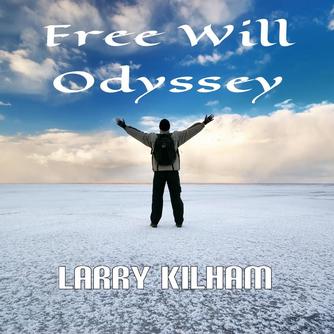Larry Kilham Blog |
 Free Will is a concept or phenomenon that appears through all literature and common discourse since civilization began. In some sense, it definitely exists, but it means different things to different people. It is a semantic construct, not a defined constant like the physical law of gravity. With this latitude for interpretation, free will has become a favorite subject for philosophers. Does free will conflict with predestination? The orthodoxy of some religions views that to be the case. Many scientists, perhaps particularly physicists, would agree for different reasons. But there is also the point of view that free will in some significant form can coexist with religious predestination and scientific determinism. The more traditional thinkers—often religious philosophers—maintain that God or some other supernatural force or being controls our destiny, so free will, if we even have it, does the individual little or no good. The forces of predestination encompass great time and distance, so the tiny human’s free will, such as it may be, is not significant. The counter to that school of thought is we must have significant free will to choose to follow God and that, in any case, God wants us to use our free will to our best advantage in our daily lives. Noting that sin is a central tenet of many religions, logicians say if we have no free will, we cannot sin when we do a sinful act, such as murder, because we have no choice. We do whatever our neurons tell us to do. This could be called neural predestination. Often questioning or even dismissing free will are the determinists—usually scientists—who claim that we are totally driven by our cerebral computer. Our every action is the outcome of a series of logical interactions of our neurons from our birth to the present instant. If you were to replay any piece of your history, you would always make the same decision. You are, in effect, a DNA-driven robot, according to this school. On the other hand, some scientists, particularly neurologists, believe that the prefrontal cortex in the human brain gives humans the unique ability to foresee the future and plan within a complex social environment. It gives humans the sense of responsibility toward the self and others. This allows humans to manage their destiny at the command of their free will. These issues play out in my new book Free Will Odyssey. You may get it as an ebook, paper book, or audiobook at Amazon. Comments are closed.
|